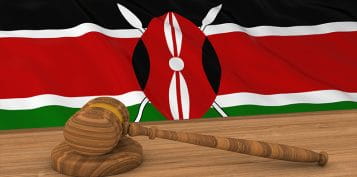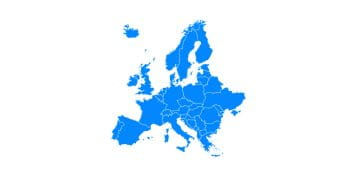Gambling Laws in Ireland – Casinos & Legal Games
During the past two centuries, the gambling laws in Ireland have constantly been improving and evolving. Today, Irish players can enjoy the old-fashioned brick and mortar gambling locations or sign up in an online casino. Read on to find out which are the laws regulating the legal games and all gambling activities in Ireland.

Ireland gambling laws cover a vast range of requirements for opening a gaming location that each operator must fulfil. When it comes to the players, they must be at legal age for gambling in Ireland to play. Read on to find out which top games you can play online and offline and find out if you have to pay a winner’s tax.
We wish to ease our players as much as possible, so we listed the main sections of this article below. Feel free to use the jumps to go to the relevant section or read everything from top to bottom, and don’t miss a thing. At the end of the article, you will find answers to the most popular questions our readers asked about the gambling legislation in Ireland.
Irish Gambling Laws in the Past & Today

Gambling has never been completely banned in Ireland. The long history of the Irish gaming entertainments goes back for centuries, but the first gambling law in Ireland was the Betting Act of 1854. Everything that followed for the next 150 years was upgrades and improvements of the initial gambling legislation to match the latest fashions in gaming.
Modern times require modern measures, and that is how the Gaming and Lotteries Act was created in 1956 to ban commercial casinos. This did not sit well with the public, which is why the rest of the gambling laws regulating gaming in Ireland appeared. This is the moment to say that the Irish gambling acts are different from the gambling laws in the UK. In the table, you can find the main laws on gambling in Ireland, and further down the article, we will tell you more about the games, casinos, and authorities.
| 🎲 Gaming & Gambling | Gaming and Lotteries Act of 1956 (2019 Amendment) |
|---|---|
| 🔥 Betting | Betting (Amendment) Act 2015 |
| 🎱 Lottery | National Lottery Act 2013 |
| 🏇 Tote/Pari-Mutuel Betting | Totalisator Act 1929, Irish Horse Racing Industry Act 1994, Horse and Greyhound Racing Act 2001 |
| 🎊 Prize Bonds | Finance (Miscellaneous Provisions) Act 1956 |
| 💻 Online Betting | Betting (Amendment) Act 2015 (AKA The 2015 Act) |
| 💰 Money Laundering | Criminal Justice (Money Laundering and Terrorist Financing) (Amendment) Bill 2020 |
The last amendment of the Gaming and Lotteries law was in 2019, and it is fair to tell you what it regulates now. First, the law requires modernisation and improvement of the application process for gaming lottery permits, licences, and all local gaming and lottery activities. Alongside this, the law changes the gambling age to a minimum of 18 years of age, ensures that charities receive more funding from lotteries, and updates the limits of all stakes and prizes for licensed gaming machines.
The last change in the gambling world brought by the Gaming and Lotteries Act’s latest changes is to assist in better promotion of gambling games and lotteries to enhance consumer protection. For example, there is a ban on promoting, advertising, or providing any unlawful gaming products.
Legal Age for Gambling in Ireland
It may be interesting for you to learn that the gambling age around the world varies from one country to another and depends on the gambling game. As we mentioned in the previous paragraph, the latest changes in the gambling laws require Irish players to be 18 years old or older. This applies equally to land-based and online gambling in Ireland. Even though some locations allow younger players, the changes are being applied everywhere.
Winner’s Tax & Casino Taxes in Ireland

According to the tax and gambling laws in Ireland, players don’t pay taxes on their winnings and have the right to remain anonymous. However, players who intend to invest their prizes will have to pay taxes on the income of the investments. That situation is quite different from the tax on gambling winnings in the UK.
On the other side of the spectrum are the Irish bookmakers and casinos, which are obligated to pay taxes and VAT. Their first charge is the betting duty at 2% turnover on all bets placed. Besides this, all operators are obligated to pay a VAT regardless of them being brick and mortar gambling locations or online casinos.
Gambling Crimes & Punishment in Ireland
Any illegal gambling activity by a player, operator or anyone related to the gambling industry is considered a crime. In Ireland, Garda Siochán and the Irish Revenue Commissioners investigate all breaches of gaming laws, stake and prize limits issues, and everything else regulated or considered illegal under the Betting Acts.
The most frequent problems players cause are underage gambling, cheating attempts, or disturbing the peace in a gambling establishment. All those actions are investigated, and the felon may face a fine, prison sentence, or both. For example, most of the time, underage gamblers are kicked out of the gambling room. Still, if authorities get involved, the faulty player may face from 6 months to 2 years conviction, a maximum fine of €50,000, or both depending on the circumstances.
The penalties for the operators’ crimes are far more severe and stretch over crimes like operating without a licence, operating rigged gaming machines, and changing game results. Allowing underage gamblers is not always the casino’s fault, but offering unrealistic awards, false advertisement, money laundering, terrorist financing, bribes, and more violations are. The penalties stretch from fines to jail time, depending on the crime. For example, a €300,000 fine is a penalty for bookmakers operating without a licence.
Gambling Authority in Ireland

According to the Irish gambling laws, the Office of Gambling Control, Ireland (OGCI) is yet to be established as an independent regulatory authority. The main functions of this office are the regulation of the entire land-based and online gambling industry in Ireland. The functions of this organisation will be similar to the rest of the gambling commissions and authorities regulating gambling in Europe and many countries worldwide like:
- UK Gambling Commission
- Malta Gaming Authority
- Gibraltar Betting and Gaming Association
- Curaçao Gaming Control Board
There are many more government authorities monitoring gambling, including Garda Síochána, district courts, the Department of Justice and Equality (DOJE), the Office of the Regulator of the National Lottery (ORNL), and the Revenue Commissioners (Revenue).
The regulation for the IE online gambling laws offers is yet to be polished, but it will be strict like in the land-based casinos. The Irish private organisations monitoring gambling are the Licensed Gaming Association of Ireland (LGAI) and The Gaming and Leisure Association of Ireland (GLAI). The Advertising Standards Authority for Ireland (ASAI) makes sure all advertisement standards are properly applied.
Legal Casinos & Games in Ireland

Ireland gambling laws regulate all gambling locations and websites, games, prizes, equipment, and even payment methods. Even though online casinos gain power in Ireland, there is still no blockchain-based cryptocurrency payment regulation guaranteed by the Central Bank of Ireland (CBI). Even though there is no prohibition on cryptocurrencies, we recommend taking extra caution before playing at a land-based or online casino that accepts them.
Legal Casinos & Poker Rooms in Ireland
Anyone over 18 years old, the legal age for gambling in Ireland, is welcome to enter and play at the legal and licensed gaming locations. This is the moment to mention that some of the locations insist players be over 21 years old, so we recommend you check the age requirements before playing.
Some of the top places to gamble in Ireland are licensed locations and private gaming clubs (informal casinos). Dublin’s residents and visitors can have a great time in Sporting Emporium Casino and Ned Kelly’s Sportsclub & Casino. If you prefer more exotic locations, try the Macau Casino Complex in Cork City. Some of the most popular poker rooms in Dublin are D1 Club, Sporting Emporium, and 4Kings Casino & Card Club, but if you are near Galaway, you can visit The Eglinton.
Irish Gambling Laws on Online Casinos

Even though not all games and gambling activities are expressively regulated by the Gaming and Lotteries Act, online gambling is legal in Ireland. Players can choose between local and offshore operators for remote betting and online gaming. We remind that the licensed and safe online gambling sites in Ireland offer games by top software providers like:
Online gambling in Ireland is governed by similar rules to the ones you can find in our online gambling laws article. Regardless of the operator you choose, or the game you like to play, we recommend you to always play at licensed online casinos and gambling sites offering regulated games and trusted payment methods.
Legal Games According to Ireland’s Gambling Laws

By law, players in Ireland have a wide selection of legal gambling games. Most gambling locations offer as many legal games as possible, but many specialise or choose one main game to focus on. Such example are the Irish online roulette sites, where you can play the most popular roulette variations. Other legal gambling games in Ireland are:
- Table Games 🎲 Poker, Blackjack, Baccarat, European Roulette, Craps, and more
- Slots 🎰 Slot Machines and Video Poker
- Lottery 🎱 Irish National Lottery and Scratch Cards
- Bingo ✔️ Bingo and Keno
- Sports Betting 🏇 Sports Betting, Horse and Greyhound Races, Financial Spread Betting, Prize Bonds, Pool Betting
- Social Gaming ⭐ Games in social medias that doesn’t include real money prizes
All those games and their variations entertain beginner and experienced players. Our advice is to start with small bets if you are just getting into the world of gambling or try a new strategy like the James Bond roulette strategy.
Problem Gambling in Ireland

Sometimes even having fun gets out of control and leads to trouble. The gambling laws in Ireland are created to protect players and operators from the wrongdoings of the other party, but there are no legal texts on dealing with gambling addiction. The only measures taken so far are limiting the bets and stakes and the sizes of the prizes.
Practice proved that this turned out to be a huge problem caused by excessive gaming on high-stakes slot machines. Once the player gets lost in the game, they stop counting the money and lose track of time. This inevitably causes a rift between addicted players and their friends and family.
Since the problem is serious, there are also serious measures taken to deal with it. For example, the online gambling sites offer self-exclusion options, while the land-based locations can deny access to addicted players. Another step to deal with the gambling addiction is to contact organisations dealing with this addiction like the Problem Gambling Ireland.
Gambling Laws in Ireland Q&A
The gambling laws in Ireland make it clear that all the major gambling games are legal, as long as licensed operators offer them. We gave you detailed information on the matter, and now we will answer the most popular questions.


